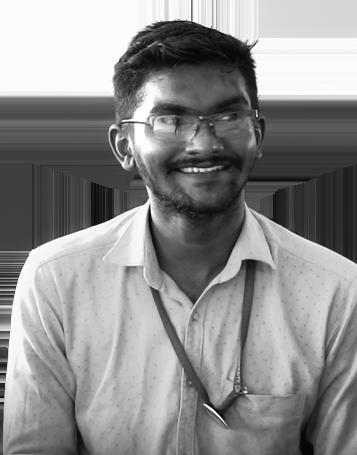
1 minute read
PLACEMENT TALKS
INTERVIEWED BY HARSH KUMAR DOSHI, 2 nd YEAR
Vijey: It started way back in 2nd semester when we learnt Circuit Theory. Through questioning why we are taught the things we are, we slowly accumulate information from our course, which is what we need. Then, last-minute cramming during our 3rd to 4th-year transition. It is a continuous process, which has to become a regular habit.
Advertisement
Q: You have done a project with the ISL lab, how useful did that prove to be for your internship and subsequent interview?
Vasanth: I worked on a temperature sensor, while my specific role was to work on the frequency divider, counter, and reader. While I was interning that project provided exposure to how a core analog electronics project is implemented from scratch, which helped me during the internship.

Q: Is there a gap between our syllabus and what’s expected from candidates during an interview? If so, how much of a gap should we be bridging?
Vijey: To my knowledge, I think the industry and university syllabus might have some gap that comes only with experience, but for the interview process they mostly stick to what we’ve learned and how well we’ve understood concepts.
Vasanth: Well, our world is constantly changing and improvising, our syllabus however is more stable and linear, so because of this we might get overwhelmed about whether or not what we learn here is truly applicable in tomorrow’s world. But taking baby steps to cover any kind of mammoth task is the way to go.
Q: What piece of advice do you have to offer to the present second-year students?
Vijey: When it comes to the curriculum, whatever college provides us is sufficient, spend some time and dedicatedly understand the concepts. Another important aspect is that one must have a logical break, a fun time, and some curricular interests. It’s an integral part of college. The covid batches missed out on a few years of college, so make the most of this time and balance all your pursuits. Our college has a plethora of activities and clubs, and cul tural programs that occur throughout the academic year. I really want to emphasize the value of participating in these, and the experience you get from organizing these, so don’t miss out on these!
Vasanth: My first advice is to explore yourself. Engineering has a wide variety of branches, including Software, core, electrical, IT and so on. Besides, you still have some non-engineering career paths too. But in this professional degree, try your hand at various projects, tech events, and theory classes. We all tend to like some subjects and concepts better, so seek your real interests and pursue that.




